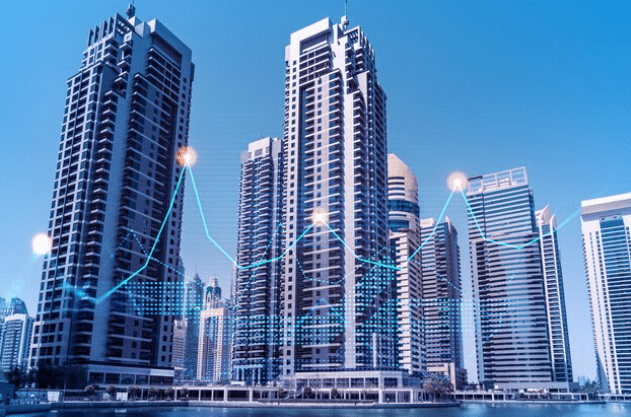The commercial real estate landscapes of Dubai and Abu Dhabi are renowned for their dynamism and opulence, attracting businesses from around the globe.
While these cities offer lucrative opportunities, they also present unique challenges for property management professionals.
In this comprehensive exploration, we delve into the multifaceted challenges of managing commercial properties in Dubai and Abu Dhabi, shedding light on the intricacies that property management professionals face in these thriving metropolises.
Understanding the Dynamics
The Booming Commercial Real Estate Scene
Dubai and Abu Dhabi stand as pillars of economic prosperity in the Middle East, drawing multinational corporations, entrepreneurs, and investors. The commercial real estate sectors of these cities are characterized by iconic skyscrapers, state-of-the-art office spaces, and a relentless pursuit of innovation. However, with great opportunities come great challenges for property management professionals.
Regulatory Landscape in Dubai and Abu Dhabi

1. Dubai’s Evolving Regulatory Environment
Adapting to Legislative Changes
Dubai’s property market is subject to continuous regulatory developments. Property management professionals must navigate evolving laws and regulations that impact lease agreements, property ownership, and tenant-landlord relationships. Staying abreast of these changes is imperative to ensure compliance and mitigate legal risks.
2. Estidama in Abu Dhabi
Navigating Sustainable Development Standards
In Abu Dhabi, the Estidama program promotes sustainable development. While aligning with such initiatives is commendable, it adds an extra layer of complexity for property management in Abu Dhabi. Compliance with Estidama standards demands a thorough understanding of sustainable building practices, which can be challenging for property managers.
Tenant Management Challenges
1. Diverse Tenant Base
Catering to Multinational Businesses
The cosmopolitan nature of Dubai and Abu Dhabi means that commercial properties often host a diverse range of multinational tenants. Property managers must navigate cultural differences, varying business practices, and unique leasing requirements, presenting a challenge in ensuring a harmonious tenant-landlord relationship.
2. Fluctuating Market Conditions
Adapting to Economic Variability
The economic prosperity of Dubai and Abu Dhabi is susceptible to global and regional economic fluctuations. Property management professionals must adapt their strategies to cope with changing market conditions, rental rate fluctuations, and shifts in tenant demand. This requires a dynamic approach to leasing and property optimization.
Operational Challenges in Property Management
1. Rising Operational Costs
Balancing Efficiency with Cost Management
Dubai and Abu Dhabi are global business hubs, but with this status comes increased operational costs. Property management in Dubai faces the challenge of balancing the efficiency of services with the need to manage rising operational expenses. This includes maintenance costs, security measures, and the implementation of innovative technologies.
2. Technological Integration
Keeping Pace with Technological Advancements
While technology offers solutions, it also poses a challenge for property managers striving to keep pace with the latest innovations. From smart building management systems to digital platforms for tenant communication, property managers must invest in and adapt to technology to stay competitive and provide top-tier services.
3. Facility Management Complexity
Maintaining Complex Infrastructures
The futuristic skyline of Dubai and Abu Dhabi comes with the challenge of managing complex infrastructures. Facilities such as smart elevators, advanced security systems, and state-of-the-art HVAC systems demand specialized knowledge and skilled personnel for effective property management in these cities.
Economic and Global Influences
1. Global Economic Uncertainty
Navigating Geopolitical Challenges
Dubai and Abu Dhabi are sensitive to global geopolitical events that can influence economic stability. Property managers must factor in global economic uncertainties, trade tensions, and regional developments when making strategic decisions about leasing, property investments, and overall management.
2. Impact of Tourism and Events
Seasonal Fluctuations and Demand Peaks
The tourism industry plays a significant role in both cities, contributing to fluctuations in demand for commercial properties. Property managers must anticipate and navigate seasonal variations, high-demand periods during events, and potential impacts on rental yields.
Tenant Satisfaction and Retention
1. High Tenant Expectations
Meeting Elevated Standards
The high standards set by the commercial real estate market in Dubai and Abu Dhabi mean that tenants expect impeccable services and amenities. Property managers face the challenge of meeting and exceeding these expectations to ensure tenant satisfaction, loyalty, and lease renewals.
2. Competitive Market Dynamics
Retaining Tenants in a Competitive Environment
With an abundance of commercial options, tenants have the flexibility to relocate easily. Property management in Abu Dhabi and Dubai is challenged by the competitive market dynamics, necessitating a focus on tenant retention strategies, exceptional service, and proactive issue resolution.
Sustainability and Environmental Concerns
1. Green Building Compliance
Adopting Sustainable Practices
While sustainability is a key focus, the challenge lies in the adoption of green building practices. Property managers must navigate the complexities of ensuring compliance with Estidama in Abu Dhabi and Dubai’s Green Building Regulations and Specifications. This includes integrating sustainable technologies and maintaining green certifications.
2. Balancing Green Initiatives with Operational Costs
Financial Implications of Sustainability
While the push for sustainability is commendable, property management companies face the challenge of balancing green initiatives with associated costs. Implementing energy-efficient technologies and sustainable building practices often requires significant upfront investment, posing financial challenges for property managers.
Regulations Impacting Property Management in Dubai and Abu Dhabi
1. Dubai’s Real Estate Regulatory Agency (RERA)
Navigating Comprehensive Regulations
In Dubai, property management is significantly influenced by the Real Estate Regulatory Agency (RERA). RERA plays a pivotal role in regulating and overseeing the real estate sector. Property managers must adhere to RERA’s guidelines, which cover aspects such as lease agreements, dispute resolution, and licensing requirements. Staying compliant with RERA regulations is essential for smooth and legal property management operations in Dubai.
2. Dubai Land Department (DLD) Regulations
Ensuring Transparent Transactions
The Dubai Land Department is instrumental in shaping property management practices. Property managers are bound by DLD regulations concerning property ownership, title deeds, and transaction procedures. Compliance with these regulations ensures transparency in property transactions and contributes to the overall integrity of the real estate market in Dubai.
3. Estidama in Abu Dhabi
Sustainable Development Standards
In Abu Dhabi, the Estidama program sets standards for sustainable development. Property managers must be well-versed in Estidama regulations, covering aspects such as energy efficiency, water conservation, and environmental impact. Adhering to Estidama standards is crucial for property managers overseeing commercial properties in Abu Dhabi, emphasizing the commitment to sustainable practices.
4. Dubai Municipality’s Green Building Regulations and Specifications
Promoting Sustainable Construction
Dubai Municipality has implemented Green Building Regulations and Specifications, emphasizing sustainable construction practices. Property managers need to comply with these regulations when managing commercial properties to ensure that buildings meet specified environmental performance standards. This includes incorporating energy-efficient technologies and maintaining green certifications.
Coping with Fluctuating Market Conditions
1. Dynamic Lease Agreements
Flexibility in Lease Terms
Property managers in Dubai and Abu Dhabi often cope with fluctuating market conditions by incorporating flexibility into lease agreements. Dynamic lease terms, such as shorter lease periods or provisions for rent adjustments, allow property managers to adapt to changing market dynamics and respond to tenant demands.
2. Proactive Market Analysis
Continuous Monitoring of Market Trends
Property managers stay ahead of fluctuating market conditions by conducting proactive market analyses. Continuous monitoring of trends in rental rates, vacancy rates, and demand patterns enables property managers to make informed decisions. This data-driven approach helps in adjusting leasing strategies and optimizing property performance.
3. Strategic Tenant Mix
Diversification for Stability
To mitigate the impact of market fluctuations, property managers strategically curate tenant mixes within commercial properties. Diversifying the types of businesses and industries occupying the space provides stability, as certain sectors may be more resilient to economic downturns.
4. Tenant Retention Strategies
Focus on Retaining Existing Tenants
In volatile markets, property managers prioritize tenant retention. Building strong relationships with existing tenants through excellent service, proactive issue resolution, and tenant engagement initiatives becomes paramount. Retaining tenants provides stability and minimizes the impact of market uncertainties.
Tenant Expectations and Amenities in Commercial Properties
1. Advanced Technological Infrastructure
High-Speed Connectivity and Smart Systems
Tenants in Dubai and Abu Dhabi expect commercial properties to be equipped with advanced technological infrastructure. High-speed internet connectivity, smart building management systems, and integrated digital platforms for communication are considered essential amenities for businesses operating in these cities.
2. Flexible Workspace Options
Adapting to Modern Work Styles
The evolving nature of work has led tenants to expect flexible workspace options. Commercial properties are incorporating coworking spaces, shared meeting rooms, and adaptable office layouts to cater to businesses seeking agile and dynamic work environments.
3. Sustainable Building Features
Green Spaces and Energy-Efficient Systems
With a growing emphasis on sustainability, tenants in Dubai and Abu Dhabi expect commercial properties to integrate green building features. This includes green spaces, energy-efficient lighting, and smart HVAC systems. Property managers must prioritize sustainability to meet the evolving expectations of environmentally conscious tenants.
4. Security and Safety Measures
Comprehensive Safety Protocols
Tenants prioritize security and safety in commercial properties. Property managers are expected to implement comprehensive safety measures, including advanced security systems, emergency response plans, and adherence to building codes. Providing a secure environment is a fundamental requirement for commercial properties in Dubai and Abu Dhabi.
5. Concierge Services and Wellness Amenities
Enhancing Tenant Experience
Commercial properties in these cities often offer concierge services and wellness amenities. These may include fitness centers, on-site cafés, and concierge assistance for various needs. Property managers are incorporating these amenities to enhance the overall tenant experience and create a desirable workplace environment.
6. Proximity to Transportation Hubs
Accessibility and Connectivity
Tenants place a premium on accessibility and connectivity. Commercial properties located in proximity to transportation hubs, such as metro stations or major highways, are highly sought after. Property managers need to consider transportation infrastructure when marketing and managing commercial spaces.
Conclusion
In the dynamic landscapes of Dubai and Abu Dhabi, property management professionals confront a myriad of challenges.
From navigating evolving regulatory landscapes to addressing diverse tenant needs, managing operational complexities, and incorporating sustainable practices, property managers must exhibit resilience and adaptability.
The success of property management in Dubai and Abu Dhabi hinges on the ability to embrace these challenges as opportunities for growth and innovation.
As these cities continue to evolve, property management will play a pivotal role in shaping the future of their commercial real estate sectors.
Read more: 9 Best Monetary Administration Programming for SMBs in 2023
